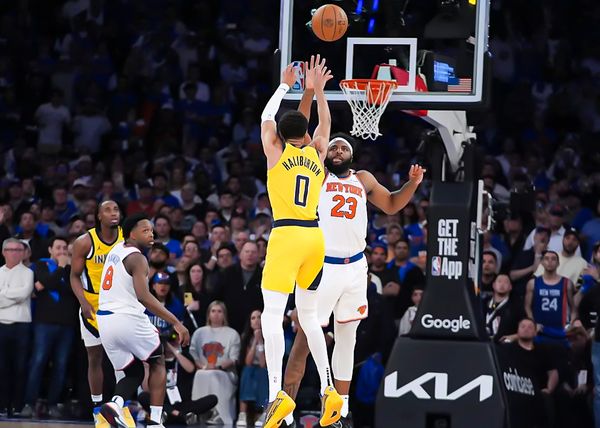When Success Becomes a Problem: Winning Streaks and Overconfidence


HotTakes
if you're reading this, you're already ahead of most bettors. Self-awareness is the ultimate edge—even when (especially when) things are going well.
Here's the thing nobody talks about: winning can be just as dangerous as losing. Maybe more dangerous, actually. When you're on a heater, everything feels different. That voice in your head saying "I can't lose" starts sounding pretty convincing. The bankroll management rules that kept you disciplined? Suddenly they feel like training wheels you don't need anymore.
Sound familiar? Let's talk about it.
The Psychology Behind the Problem
Most content about problem gambling focuses on chasing losses—trying to win back money you've already lost. That's real, and it's destructive. But there's a less-discussed trap that catches sharp bettors off guard: overconfidence after success
.
Psychologists call it the "hot hand fallacy"—the belief that success breeds more success, that you've somehow cracked the code. In reality, you might have just hit a run of variance. But when dopamine's flooding your system after three straight wins, your brain isn't exactly thinking about statistical regression to the mean.
Here's what's actually happening in your head:
Your brain releases dopamine with each win, creating a literal high
Success reduces your perception of risk (you feel invincible)
You start attributing wins to skill, losses to bad luck
Your confidence level disconnects from your actual edge
You begin making decisions based on emotion, not analysis
This is the same cognitive bias that wipes out professional traders, causes businesses to overextend, and destroys disciplined bettors who should know better. You're not weak if it happens to you—you're human.
The Warning Signs: A Self-Assessment
Take a second and be honest with yourself. Check any that apply to you right now:
☐ You're betting larger amounts than your bankroll system calls for
Even though you "know" the math, you're thinking "just this once" or "I can afford it now."
☐ You're adding more games to parlays or taking riskier props
The straight bets that got you here suddenly feel boring. You need bigger action to feel the same excitement.
☐ You're betting on sports or events you don't normally follow
You're thinking: "If I'm this good at NBA, I'm probably good at tennis too, right?"
☐ You're ignoring your research process
Those three hours of film study before a bet? Now you're making "gut calls" because your gut has been right lately.
☐ You're thinking about what you'll do with winnings before they happen
Already planning purchases, thinking about quitting your job, or imagining a new lifestyle funded by betting.
☐ You feel anxious or irritable when you can't place a bet
You need action even when there's no clear edge. Missing a game day feels wrong.
☐ You're hiding your bet sizes or wins from people who normally keep you accountable
You don't want to hear "maybe you should slow down" from your partner, friends, or betting group.
If you checked 2 or more of these boxes, keep reading. What started as smart betting might be shifting into something else.
Why This Happens (And Why It Matters)
You started betting with a system. Unit sizing, bankroll management, disciplined research. Those rules weren't arbitrary—they were your protection against both losses AND wins destroying your long-term success.
But success is intoxicating. It makes you feel different. Special. Like you've unlocked something others haven't. And here's the trap: sometimes you HAVE gotten better. Your analysis improved. You found real edges. The wins aren't all luck.
That's what makes this so dangerous. You have just enough evidence to justify escalating risk, just enough success to silence the warning signals your brain is trying to send.
Professional bettors—the ones who actually make money long-term—have a phrase for this: "Don't believe your own hype." They know that the moment you think you're invincible is the moment before you get humbled hard.
What to Do Right Now
If you recognized yourself in those warning signs, you're not broken and you don't need to quit betting forever (unless you want to). But you do need to pump the brakes and get real with yourself.
Immediate Actions (Choose at least two):
Return to your original bankroll rules—TODAY
Whatever unit sizing got you here, go back to it. Write it down. Tell someone. Follow it without exception for the next 30 days.
Take a mandatory break
Even just 72 hours. If the thought of not betting for three days makes you anxious, that's information. Most betting apps have "cool off" or "take a break" features. Use them.
Tell someone you trust
Text a friend right now: "I've been on a winning streak and I think it's getting to my head. Can you check in with me about my betting this week?" Accountability is powerful.
Set app limits
Most sportsbook apps let you set deposit limits, loss limits, and time limits. Set them BELOW what you think you need. Your future self will thank you.
Review your last 10 bets objectively
Write down each bet, why you made it, whether it followed your system. If you're deviating from your process, you're not betting—you're gambling.
For Deeper Interventions:
If you're realizing this is bigger than a hot streak issue—if betting is affecting your relationships, finances, work, or mental health—professional help is available and it works. There's no shame in reaching out. The smartest players know when to ask for support.
Resources That Can Help
United States
National Problem Gambling Helpline: 1-800-522-4700
Free, confidential, 24/7 support and local referrals
Text: 800GAM | Chat: www.1800gamblerchat.org
Crisis Text Line: Text SUPPORT to 741741
For immediate mental health support
Gamblers Anonymous: gamblersanonymous.org
Free peer support meetings (in-person, virtual, phone)
National Hotline: 855-2CALLGA (855-222-5542)
Canada
ConnexOntario: 1-866-531-2600
Mental health, addiction, and gambling support referrals (Ontario)
Ontario Problem Gambling Helpline: 1-888-230-3505
British Columbia Gambling Support: 1-888-795-6111
Alberta Addiction Helpline: 1-866-332-2322
Saskatchewan Problem Gambling Helpline: 1-800-306-6789
Manitoba Addictions Help Line: 1-800-463-1554
Quebec (Jeu: aide et référence): 1-800-461-0140
Responsible Gambling Council: responsiblegambling.org
RecoverMe app (free with code: RECOVERME100)
Gamblers Anonymous Canada: gamblersanonymous.org
Find local meetings across all provinces
All these services are free and confidential. They're staffed by people who understand what you're going through and can connect you with counseling, financial support, and treatment options.
The Bottom Line
Winning shouldn't feel dangerous, but sometimes it does. The same analytical skills that made you a better bettor can help you recognize when you're slipping.
The sharpest bettors aren't the ones who never struggle—they're the ones who recognize problems early and adjust. That's what you're doing right now by reading this. That's actually a flex.
If you're thinking "I should probably talk to someone but not yet," the research says waiting doesn't help. The best time to reach out is before things get worse, not after.
Your relationship with sports betting should enhance your life, not dominate it. If that balance has shifted, getting help isn't giving up—it's the smartest bet you can make.
Remember: The goal isn't just to win bets. It's to build a sustainable, healthy relationship with sports betting that lasts for the long term.
Need to talk?
Bookmark this page and save those numbers in your phone right now. You might not need them today, but if you do need them later, you'll be glad they're there.
For more on the psychology of betting and building winning systems, explore our Mental Edge content. And if you know someone who might need to read this, share it with them. Sometimes the best assist isn't a betting tip—it's checking in on someone who might be struggling.

